So you want to cut the cord and join the streaming revolution? There are so many on-demand streaming services available now such as Netflix, Hulu, Amazon Prime Video, HBO Max, and Disney+ to name a few. Add to that that the growing selection of live TV streaming services, such as Hulu Plus Live TV, Sling TV, ESPN+, and YouTube TV, as well as live HD broadcasts with an antenna. The whole thing can be rather confusing, especially when you’re trying to pick the best streaming services for you. We’ll walk you through everything you need to know to finally cut the cord and kick cable to the curb.
Not everyone is cut out to be a cord-cutter, though. Ditching your satellite or cable subscription and the bill it carries sounds great in theory, but it’s not something you want to rush into without a bit of research. Let’s go through the best methods for dropping traditional cable in favor of some of the best streaming services.
First things first: How’s your internet?
The thing about internet-delivered TV is that you need a broadband connection that can keep up with the streaming lifestyle. This may seem like a foregone conclusion, but we want to make it clear that if you’re going to bet your precious entertainment future on your home network, you had better have a solid internet connection. Netflix and other similar streaming video services suggest a minimum downstream speed of 5Mbps for HD streaming, but if you have inadequate home internet connection (like 5Mbps) that is not going to allow for a smooth streaming service experience, especially when you consider other devices also using the connection. You will likely experience buffering and possible crashing of the show you are streaming, especially for those with families or households streaming more than one show or movie at a time.
High-quality streaming needs higher-speed internet
Of course, if you’re looking to get into the streaming big leagues to access the growing array of 4K Ultra HD streaming content available from Netflix, Amazon, Disney+, YouTube, and others, you’ll want to kick up your broadband speed to at least 25Mbps. If you’re only going to be downloading 4K content from sites like FandangoNow or Ultraflix — which offer 4K content at speeds as low as 4Mbps to 10Mbps — 25Mbps will probably suffice, but regardless of which streaming service you select, fast and reliable internet is key to a positive streaming experience.
Peak internet usage time can affect your streaming
We also recommend testing your internet speed at peak streaming hours (between 6 and 10 p.m. on weekdays) to determine if your neighborhood struggles under the strain of heavy traffic. For example, if you routinely get around 10Mbps downloads during the day, but that speed takes a dive to about 3Mbps around dinner time, you’ll want to call your internet provider to see if anything can be done. Fortunately, this is an increasingly rare problem outside of rural areas, but better to check ahead.
Check your home network equipment
Don’t forget to check your home network equipment. Most modern routers and modems should offer up all the speed you need, but non-gigabit equipment may not suffice for simultaneous 4K streams. Any hiccups in your experience also may be caused by weird technical issues such as improper port forwarding, wireless interference, or other random things that are tricky to track down, some of which we’ll attempt to help you troubleshoot. If you’re unsure about any of it, be sure to give your internet service provider a call.
Overall, if you have multiple people in your household using multiple devices such as smartphones, tablets, and computers, or want to watch multiple streams in 4k Ultra HD, we recommend a home internet speed of at least 50 to 100Mbps. 50Mbps can handle roughly three video streams as well as some additional online surfing in the house. You are looking at closer to 100MB if you want to do all that in 4k Ultra HD. You can also check out our detailed guide on how to stop streaming buffering and upgrade your network for more details on internet and streaming speeds.
Get an HD antenna
Before you investigate the best streaming services for you, and especially if local sports and broadcasting is important to you, you should check out what is available to you via an HD antenna. If you are located in an urban area, you may be able to get tons of live TV channels for life, for the one-time cost of a piece of hardware! No monthly fees. A good HD antenna likely offers all four major networks (Fox, ABC, NBC, and CBS), along with as many as 10 to 15 other selections (PBS, The CW, Univision, etc.) in HD (and, soon, 4K) resolution, all for free. To make sure you’ll get decent reception, you can simply buy one and try it out, ask around the neighborhood, or try this antenna analysis tool which will tell you which channels you can expect to receive in your area.
There are numerous antennas available that will nab you plenty of HD channels, but here are a couple of our favorites:
ClearStream Eclipse
The ClearStream Eclipse has some of the best-rated performance in its class. The antenna is multi-directional, powerful, and surprisingly versatile.
The indoor Eclipse line comes in 35- and 50-mile versions, as well as indoor/outdoor 60- and 70-mile variations in their 2Max and 4Max models, respectively, so you’ll be able to snag a model that best suits your location. The double-sided adhesive mounting surface is black on one side and white on the other, and it can be painted over so you’ll be able to integrate it into any decor. The circular design of the antenna is unique and provides an advantage in being better at picking up UHF signals (a type of HD TV signal) than most other indoor antennas. Plus, it’s multidirectional, so finding an ideal configuration where the signal is clearest is easy.
Mohu Leaf Metro
We like the Mohu Leaf Metro because its small profile easily tucks away, without sacrificing much functionality. Though its range is limited to approximately 30 miles, it’s perfect for those living in smaller apartments or rented rooms, especially in urban environments where over-air TV signals are plentiful.
To compound the versatility enabled by its tiny, paper-thin size, the antenna comes in either black or white, and you can also paint it to match your interior. Plus, its adhesive coating means it will stick to almost any surface and can be moved to other locations with ease. An included 10-foot detachable coaxial cable allows for a fairly flexible installation.
There are more recommendations in our indoor antenna guide, which also includes explanations of how antennas work and how best to set them up.
If you think you might want to record your local network TV stations, you should consider picking up a Tivo Bolt OTA or other broadcast DVR.
Trade up for a real streaming device
You might have a Blu-ray player or smart TV with streaming apps on board, but many of these offer a pretty dismal streaming experience. Newer TVs from Samsung and LG have pretty impressive smart interfaces, and Roku TVs are fantastic for all-in-one streaming. If you own one of these, perfect, otherwise, if you’re going to transition to full-time streaming, you may want a separate device purpose-built for the job. Below is a small selection of some of our favorites. If you want more recommendations, we recommend checking out our full list of the best streaming devices you can buy.
Apple TV 4K
Apple TV 4K’s latest streaming box launched in 2021. It has everything you need for the best streaming experience: 4K UHD resolution, HDR (both HDR10 and Dolby Vision), Dolby Atmos, and 4K content.
The Apple TV 4K in 2021 includes the 2nd generation Siri remote. This is a large update from the previous remote because the new remote offers a clickpad — a circular directional ring with a central OK button. The system also is faster than previous models, and the inclusion of 4K makes it a viable alternative to the other options on this list for Apple users. Apple TV boxes are compatible with the Apple TV app, which features an interface that’s been designed expressly for cord-cutters. You can subscribe to and access dozens of paid streaming services from within the app, and the little wonder box is Apple’s home turf for Apple TV+, Apple’s dedicated streaming service.
Another option for the serious bargain seeker is to find the last-gen model on a site like eBay, however, we obviously can’t vouch for any reliability there. While the previous generation Apple TV is showing its age (and lacks 4K support), it’s still handy for Apple fans thanks to AirPlay, which lets you easily stream media from your iPhone or iPad to the TV. Either way, if you’re a big-time Apple fan, the Apple TV is likely to be a viable choice as your streaming hub.
Read our full Apple TV 4K review
Roku Streaming Stick+
While every Roku model has its merits, the best of the bunch for our money is the Roku Streaming Stick+. Offering a speedy processor, 4K, HD, HDR, Dolby Audio and Dolby Atmos support, and 802.11ac Wi-Fi, this little stick does everything you want for a crazy-low price. (Note: One feature Roku doesn’t support is Dolby Vision, Dolby’s HDR format, so if your TV is Dolby Vision-ready, you may want to look at the other devices on this list.)
With thousands of available “channels,” Roku’s streaming platform connects to virtually every major streaming service online. More importantly, the interface is very intuitive; you can quickly search for content across providers by actor, series, movie titles, or the specific genre you’re looking for. The Roku interface will even tell you which services offer what you want for free, and which will charge for it. The “Roku Channel” is quickly becoming the best one-stop shop for cord-cutters, as it pulls together the best shows and movies from all of your sources, while also letting you sign up for additional paid services. The remote is also handy, letting you control both power and volume on most TVs, and offering voice search with the press of a button. Roku devices are versatile and full of cool tips and tricks to improve the experience.
Read our full Roku Streaming Stick+ review
Chromecast with Google TV
Google Chromecast with Google TV is the latest version of the Google Chromecast line, even though it launched in 2020. Chromecast has come a long way since its first version. Chromecast with Google TV is a great alternative to Roku, Apple, or Amazon streaming devices, and at just $50 you can’t really go wrong.
It does everything its predecessor, the Chromecast Ultra, does (delivers 4K HDR content and support for Dolby Vision and Dolby Atmos), and more. A full-featured Android TV streamer, the Google TV interface automatically pulls in all the subscribed streaming services associated with your Google account without having to enter all your individual credentials, and it has support for HDR10, HDR10+, Dolby Vision, and Dolby Atmos all built-in. The remote is voice capable and can be used to control the volume, mute, and power functions, too.
Read our full review of the Chromecast with Google TV
While the Google Chromecast with Google TV is our standout favorite, there are some great alternatives, each with its own special something to offer. Here’s a rundown of some close contenders:
Amazon Fire TV Stick 4K Max
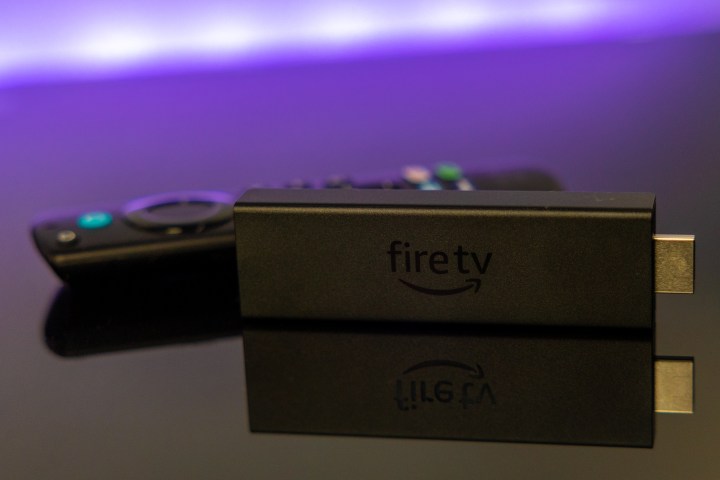
The Amazon Fire TV Stick 4K Max is the newest version of Amazon Fire TV devices. You get support for 4K Ultra HD resolution, Dolby Vision, HDR, HDR10+, and Dolby Atmos. Some of the best parts of the Amazon Fire TV Stick 4k Max are its convenient stick format and its $55 price tag.
It also supports Wi-Fi 6 (aka 802.11ax), which allows for a better home network, with greater speed and range allowing for a smoother 4K streaming experience. If your home network includes Wi-Fi 6 then you will want to check this device out.
If you already have various Alexa devices at home, the Amazon Fire TV Stick 4K Max will fit right into that ecosystem and allow you to control these devices. You can view your front door camera with the Live View Picture-in-picture support, ask Alexa about the weather, or turn off your lights. It also supports Amazon’s cloud gaming service — Luna.
In regard to your streaming goals, the Amazon Fire TV Stick 4K Max lets you sync up with any service you might have like Netflix, Prime Video, Disney+, YouTube, Apple TV, and tons more.
Read our full Amazon Fire TV Stick 4K Max review
Playstation 5
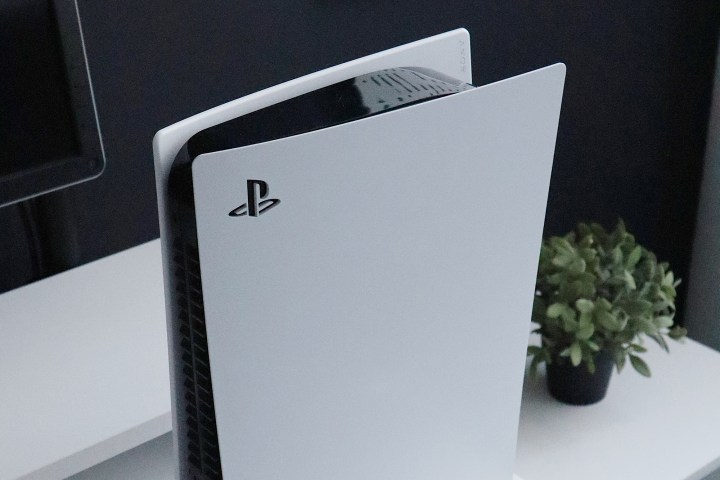
Although it may not be the first thing that comes to mind for a streaming device, your gaming console is a great way to stream services and help you cut the cord. PlayStation 5 offers the ability to stream popular services you may have a subscription with like Disney +, Amazon Prime Video, Crunchyroll, ESPN, Apple TV+, Netflix, Youtube, and more. Playstation 5 supports 4k streaming.
You can access these services via the Media tab and TV & Video section from the main menu. Playstation also optionally sells a media remote that you can use to quickly access these entertainment services quickly from the palm of your hand.
Read our full Playstation 5 review
Choose a streaming service or three
Now that you’ve gotten all of the hardware you’ll need, it’s time to consider which streaming services will best meet your entertainment needs. We suggest aiming to strike a balance between variety and cost. Below is a breakdown of the major services you’ll want to consider.
Netflix ($10 to $20/month)
An obvious choice, and one that is nearly essential to any cord-cutting list, Netflix’s streaming service costs $10 for the basic plan (one stream at a time, no HD or UHD content), $15.50 for the standard plan (up to two simultaneous streams, includes HD video) and extends up to $20 per month for a premium plan that allows up to four users at once, with the added bonus of access to Ultra HD and Dolby Atmos content. Netflix’s catalog includes series from other networks, scores of both licensed and in-house films, and original hit series like Tiger King, Stranger Things, The Witcher, and many more, all of which come commercial-free.
Everything you need to know about Netflix
Amazon Prime Video ($140/year or $9/month)
Amazon’s Prime video service offers a selection of licensed TV shows and movies, alongside lauded original series like Outer Range, The Boys, Jack Ryan, and The Marvelous Mrs. Maisel. The service has been working hard to close the gap with Netflix and other competitors. Amazon also offers a wide selection of streaming content available in both 4K and HDR. Many of its newer titles are available in Dolby Vision and HDR10+ and even more titles offer Dolby Atmos for immersive surround sound.
Amazon has a monthly plan for a prime membership for $13 a month, and if you just want the Amazon Prime Video service on its own, you can now just get that for $9 a month. Either plan is a good option if you can’t pay for the annual membership upfront, but note you’ll be paying $36 more for a Prime membership over time if you’re planning to subscribe for a full year. If you tend to do some regular shopping at Amazon, however, Prime’s two-day shipping policy practically pays for itself and makes the $119/year subscription a far better deal.
Everything you need to know about Amazon Prime Video
Disney+ ($8/month or $80/year)
Getting into some of the more specialized services, Disney+ is a relative newcomer to the streaming arena, but it’s already turning heads with its massive catalog of both classic and contemporary titles from every corner of the entertainment giant’s empire. You’ll get access to more than 15,000 episodes of TV shows (including massive hits Obi-wan Kenobi, WandaVision, and The Mandalorian) and tons of movie titles, from everything in the Marvel Cinematic Universe to the Star Wars galaxy, plus titles from Pixar and classic Disney films. At just $8 per month — with added value when combined with Hulu and ESPN+ — Disney+ is an absolute steal. The company provides the best fidelity it can for anything you watch, too, all the way up to 4K Ultra HD with HDR, Dolby Vision, and Dolby Atmos, when available. Plus, you can download anything you want for offline viewing.
Everything you need to know about Disney+
Subscribe to Disney+:
HBO and HBO Max ($10 to $15/month)
Whether you opt for just HBO alone or go for HBO Max (the latter will score you all of standard HBO’s content, too), the $15/month price point makes it among the most expensive on-demand services here — but it’s worth it. You’ll be able to watch all of the latest shows on the premium channel — including Westworld, Euphoria, and And Just Like That — at the same time as they appear on the traditional service. Add to that a cascade of past classics, from The Big Bang Theory, The Sopranos to Deadwood, newer movie releases, popular weekly shows like Real Time with Bill Maher and Last Week Tonight with John Oliver, and virtually everything on the network anytime on demand.
HBO Max offers streaming in HD with select films available in 4k and HDR. HBO Max is available for $10 a month for an ad-supported stream and $15 a month for ad-free streaming. It’s worth noting that some live TV streaming services, like DirecTV Stream, offer HBO as part of existing packages, or at a discount (see Web TV section, below).
Everything you need to know about HBO
Subscribe to HBO Max: Try now
Apple TV+ ($5/month)
Apple TV Plus is another interesting standout. It’s one of the cheapest you’ll find at just $5 per month, and if you just bought an Apple device, you can get up to three months before you’re asked to pay. The content is made up of exclusively Apple original shows and movies, including Severance, Servant, Pachinko, and Golden Globe-winning Ted Lasso. Apple TV+ offers some experiences in 4k, HDR, Dolby Vision, and Dolby Atmos.
Everything you need to know about Apple TV+
Some final services to consider
There are also lesser-known services to have a look at as well. Some are ultra-specialized like the sports-exclusive ESPN+ and Fubo TV, while others can’t quite match up in overall content quality, but you’re usually rewarded with more wallet-friendly subscription prices.
Another contender is NBCUniversal’s streaming service, Peacock, launched for Comcast subscribers last year and currently boasts more than 40,000 hours of content, including popular titles such as 30 Rock, Brooklyn Nine-Nine, and all 47 seasons of Saturday Night Live. Live and on-demand news, late-night shows, kids shows, sports, and reality TV are also on the roster, and Peacock, too, has a bunch of originals in development. We’ll be monitoring these new options and updating our list as they come online and compete for your dollars.
It’s important to note, however, that the more you spread out your selection, the closer you’ll come to matching (or greatly exceeding) that dastardly cable bill every month. If you’re looking to save real bucks, you’ll probably need to choose two or three of our highlighted services to stay on budget.
Add a live TV streaming service
Perhaps the biggest enabler for those aiming to quit cable for good — without giving up live TV — is the growing list of live TV streaming services available, all of which come with free trial periods and no contracts. There are several to choose from, each with its own advantages (and disadvantages). We’ve got a detailed comparison piece, The best live TV streaming services: Hulu, Sling TV, YouTube TV, and more, that breaks down each of these services in finer detail, but below is a general overview.
Sling TV ($35 to $50/month)
Sling TV offers two base channel monthly packages: Sling Orange ($35) and Sling Blue ($35). Sling Orange offers popular channels like ESPN but is limited to a single stream — meaning subscribers can only view on one device at a time. Sling Blue offers many of the same channels as Orange along with a whole lot more but is also missing some key channels, ESPN among them. On the flip side, Sling Blue offers NFL Redzone (with the Sports Extra add-on, however), a must-have channel for NFL fans.
Apart from the basic packages, $6 add-on packs like News Extra, Kids Extra (on Sling Blue), and other bundles can be added on top, including a $5 DVR extra that adds another 200 hours of storage atop the 50 free hours you get with the service. There’s even a respectable selection of movies for rent in HD, as well as some free on-demand content. While the picture may not be quite as reliable as cable or satellite TV (often dependent upon your device), Sling TV is affordable and easy to use, and the reliability has improved greatly since its launch.
In addition to the channel package add-ons, Sling TV also offers premium add-ons — including Showtime, Cinemax, Starz Epix, and more — for between $6 and $15/month on top of your base package.
Everything you need to know about Sling TV
DirecTV Stream ($70 to $150/month)
A lot has happened with AT&T TV — it was called AT&T TV Now, and recently it has rebranded again, merging with the umbrella brand AT&T TV. It is now known as DirecTV Stream. While pricing hasn’t changed much, the $70 Entertainment Package gets you 75-plus channels, while the next two tiers up the 105+ channel $90 Choice Package and 140+ channel $105 Ultimate Package both include HBO Max free for a year. There is also the DirecTV Stream premier package which includes 150+ channels, 65,000 on-demand titles, regional sports networks, as well as HBO Max, Showtime, and Cinemax. Add-on channels and features are available from $5 per month.
Everything to know about DirectTV Stream
Subscribe to: DirectTV Stream
Hulu + Live TV ($70/month)

Unlike most of its competitors, Hulu + Live TV offers a single channel package, priced at $70 per month for access to more than 75 live channels (depending on your region, of course). Sports fans will likely find plenty to love about Hulu+Live TV’s user interface, which makes tracking games and teams simple and concise.
Unlike the other services here, Hulu doesn’t offer much in terms of add-on channels to bolster your channel listing, but it does have premium channels like HBO Max, often at a discount.
Everything you need to know about Hulu + Live TV
Subscribe to Hulu+ Live TV:
YouTube TV ($65/month)
It’s a no-brainer that the largest video platform in history would build its own live TV streaming service. Like Hulu’s service, YouTube TV offers a single channel package. You’ll get 85-plus channels with a $65 monthly subscription — including sports channels you’d normally have to pay much more for with other services — along with a handful of optional add-ons. You can also add 4K for for an additional $20 per month, something that its biggest competitor, Hulu + Live TV, does not offer as of yet.
On top of the TV content, you’ll also get access to all of YouTube’s premium content, which includes YouTube-produced series from popular creators and celebrities. The availability of local affiliates of the big four broadcasters (CBS, ABC, NBC, and Fox) varies by location, but the YouTube TV service is available in all U.S. markets. You also will get unlimited DVR storage space to stock up on all your favorite shows.
Everything you need to know about YouTube TV
Subscribe to: YouTube TV
Add a live sports channel
If watching sports is your main TV habit, then you can really narrow it down and find exactly the sports you are interested in watching. Check out the various live sports channels you can add to your best streaming service experience.
NFL+ ($5 to $10/month)

NFL+ offers 2 tiers – NFL+($5) and NFL+ Premium ($10). Both services offer Live local and primetime games on phones and tablets, live out-of-market preseason games on all devices, live game audio from all games, and various on-demand, ad-free NFL programming. The Premium selection will also get you full and condensed game replays on all devices, and coaches film including “All-22”.
Everything you need to know about NFL+
Subscribe to: NFL+
ESPN+ ($10/month)
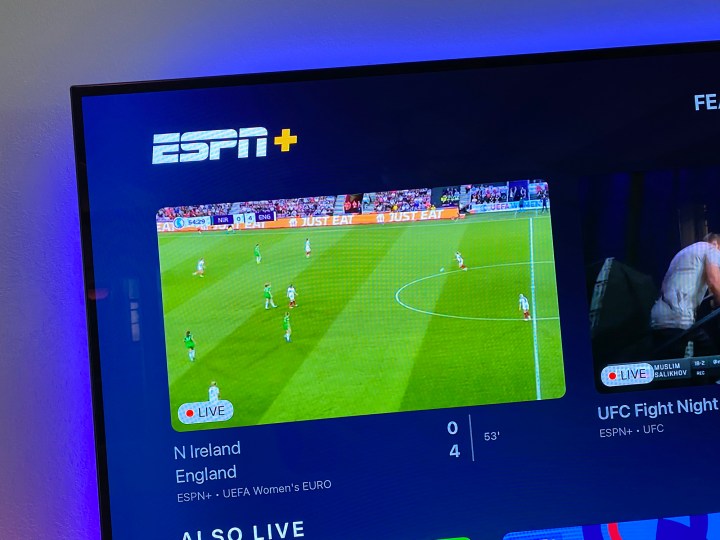
ESPN+ is one of the most affordable ways to stream live sports in your cut the cord package, as it costs $10 a month. You get access to some live sports, but there is a large emphasis on college sports. ESPN+ doesn’t have live NFL or NBA games, and there is no access to live coverage of sports in your area. You will also be able to access MLB, NHL, MLS, Pga Tour, UFC, and more. There is also the ability to download and watch offline.
Everything you need to know about ESPN+
Subscribe to ESPN+ :
Additional live tv streaming services to consider
In addition to these services are some options that are lesser-known but worthy of consideration, including Pluto TV, Fubo TV, Philo, and others, all of which we go into further detail about in this handy breakdown.
Weird and wonderful streaming services
One of the greatest benefits of cutting the cord is you get to hand select the services that really interest you. There are lots of extremely specialized channels to get you lots of content that is exactly what you are looking for.
Crunchyroll ($8 to $10/month)

Crunchyroll is the streaming service for anime and manga fans. There are over 1,200 anime series, 200+ East Asian dramas, and 80+ manga titles for you to browse and enjoy. There is an $8 Fan ad-free plan with 1 device, or the $10 Mega Fan plan that allows 4 device streaming and offline viewing. If you want to see the kind of content available, check out our guide to the best anime on Crunchyroll and Funimation.
Shudder ($6/month)

Shudder is a streaming service built for horror fans. Shudder is full of spooky and horror-filled content that is both old and new. There is some niche horror content that you won’t find on other streaming platforms. Shudder also offers streaming channels that play non-stop, specific genres of horrors like Shudder originals, classic slashers, or psychological thrillers to allow you to browse upon something new. There are also 630+ horror-themed movies and 40+ series to enjoy. Shudder costs just $6 a month so if horror is something you enjoy, it is worth checking out. For a peek at what’s available, check out our guide to the best movies and shows on Shudder.
See more
Adjust your expectations
When you decide to cut the cord and end your cable subscription there may be some growing pains. Streaming services are a whole new way to watch TV that can be quite different that the typical cable or satellite experience. Even though live TV streaming services feel a little more like cable than Netflix or Amazon Prime Video, the cord-cutting experience will likely differ from what you’re used to, so it’s a good idea to prepare for an adjustment period.
Give it some time
Quitting cable is more of a lifestyle change than you might realize, and the first few weeks might be frustrating as you get used to it. But after a while, especially once you set up alternatives to wired service, you won’t miss cable at all. You won’t be doing as much mindless channel surfing, but being more deliberate about your entertainment choices is satisfying in a way that cable never was. You no longer have to limit yourself to programmed shows now that you can choose the exact show you want to watch at any time. Plus, access to full seasons at a time allows you to become engrossed in your shows and binge entire seasons at once if you have the desire and time.
There is a slight streaming delay that may cause spoilers
One thing you should note if you enjoy watching live TV streaming is that your feed comes in a bit delayed compared to cable and over-the-air setups. If you’re trying to watch live events and tweet and react live on social media about it, or watch with someone over voice chat who has a cable line, this can be a downer. You might be a few moments behind. You may see spoilers online before you see them on your TV. Your internet connection will also influence your viewing experience quality. Since you depend entirely on an internet connection, you will be without virtual entertainment if you lose that connection due to an internet outage, staring impotently at a blank or frozen screen.
Cord-cutting does not mean always mean cost-cutting
When it comes to cord-cutting, having more choices is what it’s all about. Keep in mind that cord-cutting does not always mean cost-cutting. In fact, the costs are much more similar than you might expect at the end of the day. You will have the freedom, however, to customize your entertainment system to your liking and the opportunity to build upon your system as your needs evolve. You can choose from all or none of our suggestions. Once you get more comfortable navigating, there are even more options to choose from. And, new selections (including original series) pop up all the time.
So, if you’re tired of being pushed around by cable or satellite companies, follow our lead and cut the cord. You can make your own way with a custom-curated entertainment experience. We did — and we don’t have any regrets.
Editors’ Recommendations
Credit: Source link




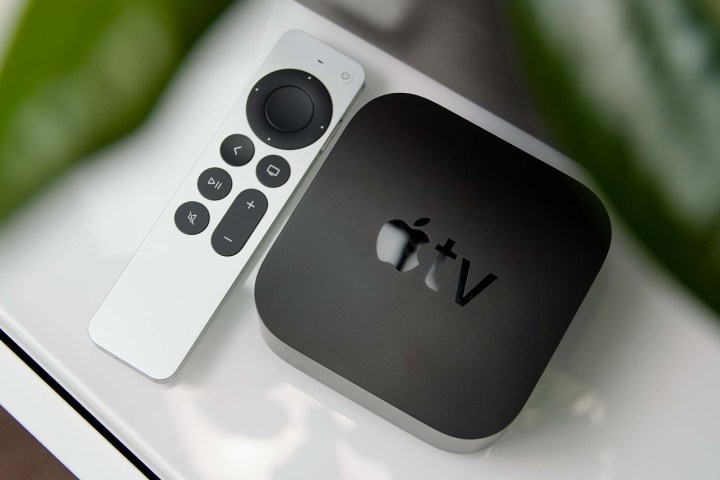

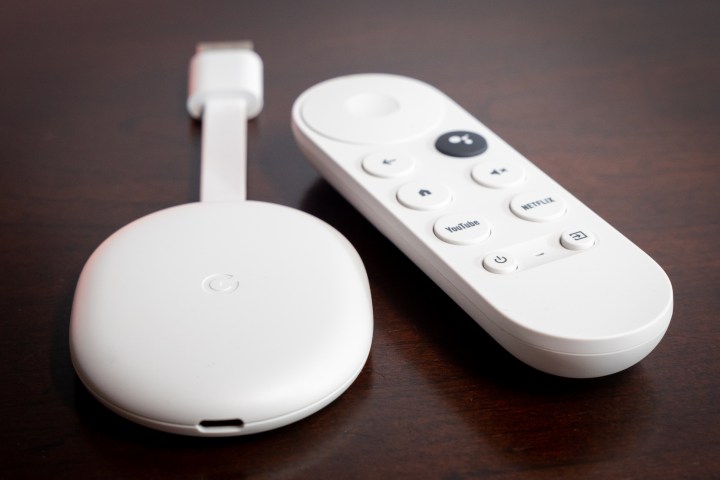
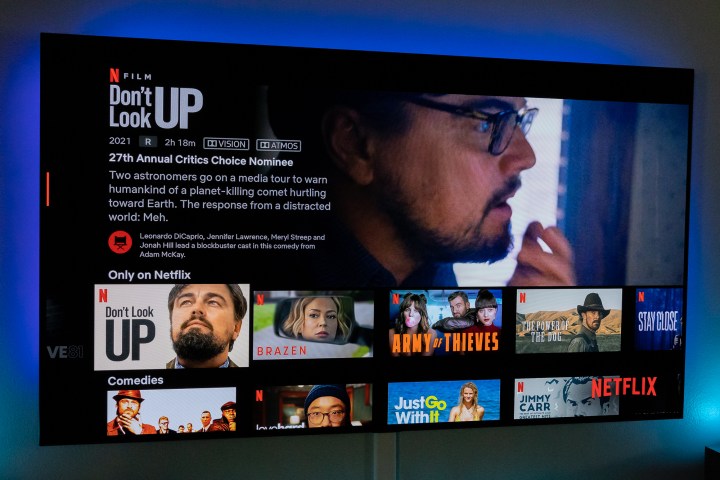
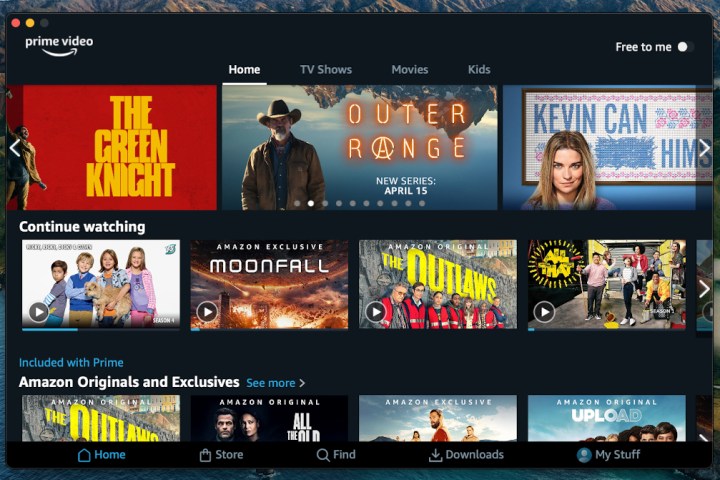
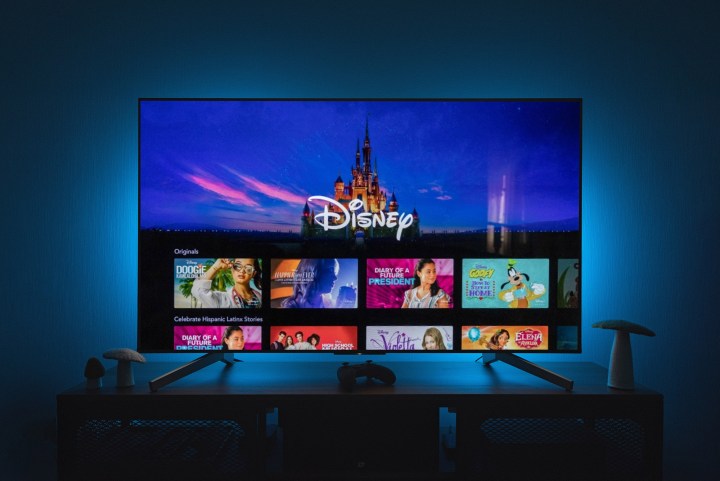
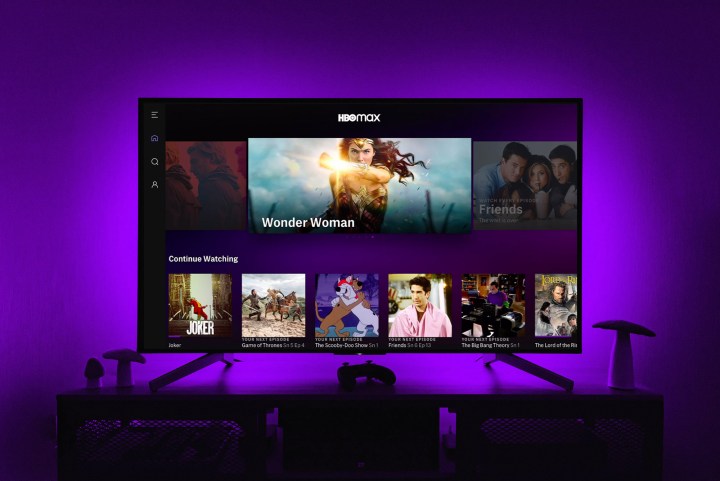

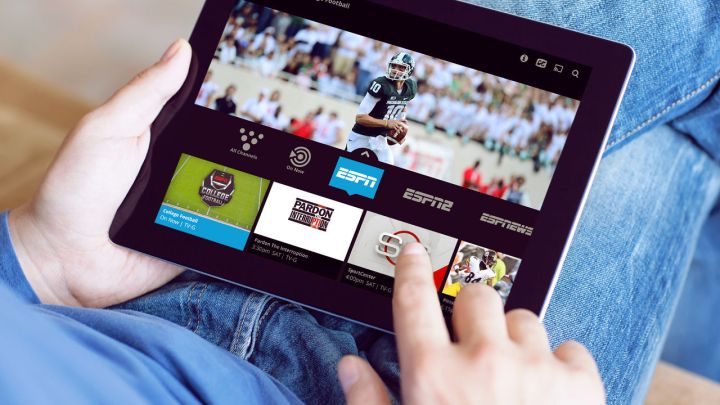

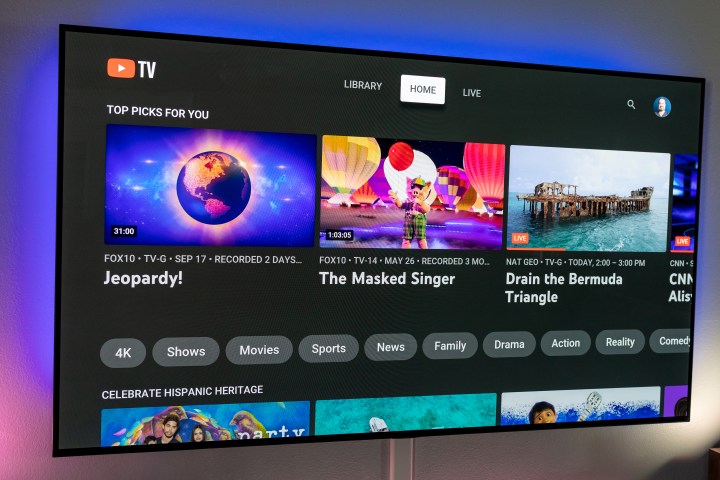
Comments are closed.